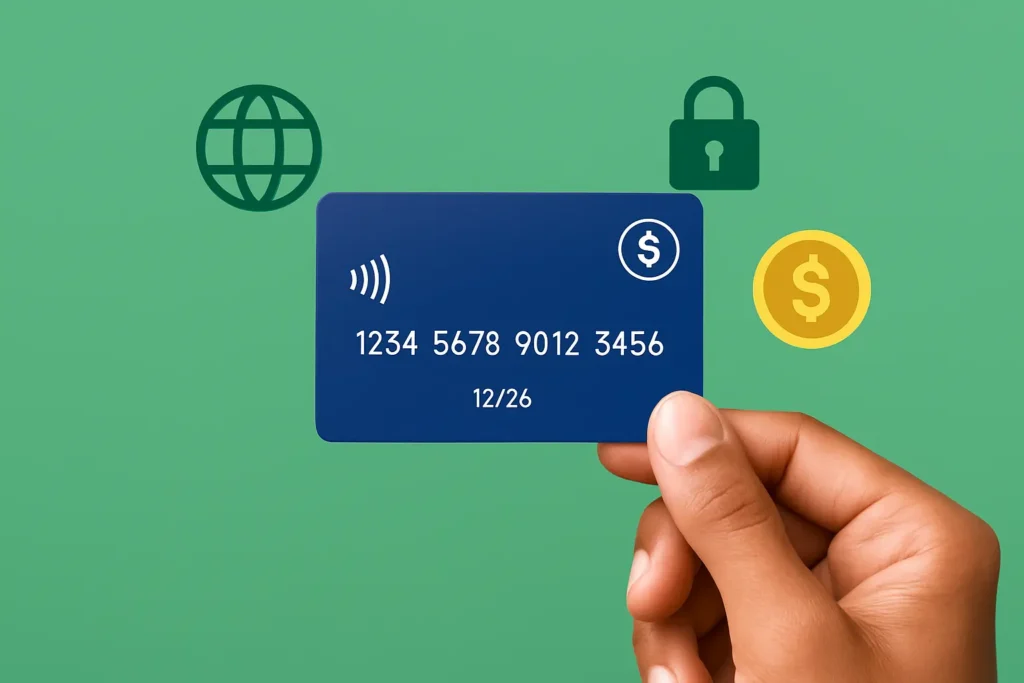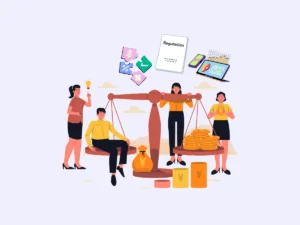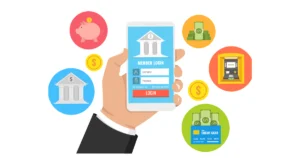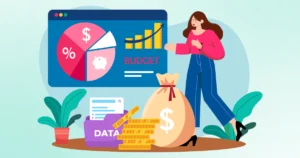Making international payments from Nigeria or other African countries has never been straightforward. Many people struggle when trying to use their regular naira debit cards on platforms like Amazon, Netflix, or even for Facebook Ads. Banks often decline transactions, impose strict limits, or simply block cards from working on global sites.
This challenge has created demand for a smarter solution — the virtual dollar card. With just your smartphone and a fintech app, you can instantly generate a prepaid USD card that works for shopping, subscriptions, and business payments abroad.
In this article, we’ll explain what a virtual dollar card is, how it works, the best virtual dollar cards in Nigeria, and how you can get one today. If you’re in a hurry, you can skip ahead and use our free Virtual Card Finder tool to compare providers instantly.
What Is a Virtual Dollar Card?
A virtual dollar card is a prepaid card that exists entirely online. Instead of a physical plastic card, you get digital details — a card number, expiry date, and CVV code — that can be used to make payments anywhere US dollar cards are accepted.
Unlike your regular naira debit card, a virtual dollar card is funded in your local currency but converted into USD before you spend. This means you can:
- Pay for international subscriptions like Netflix, Spotify, or Canva.
- Shop on global marketplaces such as Amazon or AliExpress.
- Run Facebook and Google Ads without worrying about declined payments.
Why It Matters in Nigeria and Africa
- Naira cards often fail on international sites due to restrictions.
- Dollar scarcity makes it hard to access foreign currency.
- Global access: A virtual dollar card gives freelancers, students, and small businesses equal footing to transact online.
Put simply, a virtual dollar card is your digital passport to global payments.
How Does a Virtual Dollar Card Work?
A virtual dollar card functions almost the same way as a traditional debit or credit card, but the entire process is digital and prepaid. Here’s how it typically works:
- Fund Your Wallet in Naira (or Local Currency)
- You deposit money into the fintech app or bank platform.
- For example, you transfer ₦10,000 into your Kuda, Opay, or Payday wallet.
- Automatic Currency Conversion
- The platform converts your funds into USD at its exchange rate.
- Your wallet balance now shows in dollars.
- Card Creation
- From inside the app, you generate a virtual card.
- You instantly get your card details: card number, CVV, and expiry date.
- Use Online Like a Regular Dollar Card
- Enter your card details when making a purchase or paying for a subscription.
- The platform deducts from your prepaid USD balance.
Where Can You Use a Virtual Dollar Card?
- Streaming & Entertainment: Netflix, Spotify, Apple Music, YouTube Premium
- E-commerce Shopping: Amazon, eBay, AliExpress, Shein
- Digital Ads & Tools: Facebook Ads, Google Ads, Canva, Grammarly
- App Stores & Software: Apple App Store, Google Play, Zoom, ChatGPT
- Travel & Bookings: Airbnb, Booking.com, international flights
This convenience is why searches like “how to get a virtual dollar card in Nigeria” have skyrocketed — people want a reliable way to make international payments without restrictions.
Benefits of a Virtual Dollar Card
Using a virtual dollar card goes beyond convenience. For freelancers, students, entrepreneurs, and everyday users, it solves real financial pain points. Here are the biggest benefits:
1. Access to Global Payments
Many Nigerian and African bank cards get declined on international websites. With a virtual dollar card, you can:
- Subscribe to Netflix, Spotify, and Amazon Prime.
- Pay for Facebook or Google Ads without disruptions.
- Shop on global marketplaces like Amazon and AliExpress.
2. Instant Setup & Ease of Use
No need to queue at the bank or open a domiciliary account. Most fintech apps let you generate a card in under five minutes once your KYC is approved.
3. Security & Fraud Protection
Virtual dollar cards use unique card numbers. If your details are ever compromised, you can quickly freeze or delete the card and generate a new one. Some providers even issue disposable cards for one-time payments.
4. Budget Control
Because the card is prepaid, you can only spend what you load. This makes it easy to set limits for personal expenses, ad campaigns, or even family members.
5. Flexible for Different Users
- Freelancers can pay for global tools like Canva or Zoom.
- Students can buy online courses and pay for exam registrations.
- SMEs can fund ad accounts and settle invoices abroad.
- Shoppers can buy international products without payment failure.
💡 Pro tip: Before choosing a provider, always check for hidden fees (issuance, maintenance, FX conversion). To save time, you can use our free Virtual Card Finder tool to compare the cheapest and most reliable options.
Best Virtual Dollar Cards in Nigeria (2025)
Nigeria has one of the fastest-growing fintech ecosystems in Africa, and virtual dollar cards are at the center of this transformation. The question most people ask is: “Which is the best virtual dollar card in Nigeria?”
The answer depends on what you need — low fees, reliability, fast setup, or a strong reputation. Below is a list of the top virtual dollar cards in Nigeria (2025) with their features, pros, and cons.
1. Kuda Virtual Dollar Card
Kuda Bank has established itself as the “bank of the free” and continues to innovate with easy-to-use digital services.
- Features: Create a virtual USD card instantly from the Kuda app.
- Pros: Seamless interface, quick setup, instant funding from your Kuda wallet.
- Cons: Exchange rate margins can be higher than traditional banks.
- Best For: Everyday users who want simplicity and convenience.
2. Opay Virtual Dollar Card
Opay, one of Nigeria’s most widely used super apps, has expanded into global payments. Its Opay virtual dollar card is popular for ads and shopping.
- Features: Works with international platforms like Amazon, Facebook Ads, and Netflix.
- Pros: Highly accessible, great for SMEs paying for ads.
- Cons: Spending limits may apply depending on KYC level.
- Best For: Small business owners and individuals running digital ad campaigns.
3. Payday Virtual Dollar Card
Payday targets freelancers and remote workers who often need reliable access to foreign currency.
- Features: Multi-currency support (USD, GBP, EUR) with international card usage.
- Pros: Great for freelancers, instant payouts, low entry barriers.
- Cons: Customer support can be slow during high demand.
- Best For: Freelancers and remote workers needing global access.
4. GTBank Virtual Dollar Card
GTBank provides a GTB virtual dollar card that’s bank-backed, making it more familiar for traditional users.
- Features: Secure card with bank-level compliance and KYC.
- Pros: Trusted provider, recognized by regulators.
- Cons: Stricter application process and longer waiting time compared to fintechs.
- Best For: Users who value security over speed.
5. Alat Virtual Dollar Card (Wema Bank)
Alat, by Wema Bank, was one of the first digital banks in Nigeria. Its Alat virtual dollar card is still trusted by many.
- Features: Available within the Alat app, with solid digital infrastructure.
- Pros: Backed by a licensed bank, early mover advantage.
- Cons: Higher fees compared to fintech startups.
- Best For: Long-term users who prefer bank-backed reliability.
6. Barter by Flutterwave Virtual Dollar Card
Flutterwave’s Barter app allows users to generate virtual dollar cards easily. It became especially popular among digital entrepreneurs.
- Features: Multiple card creation for different platforms (ads, shopping, subscriptions).
- Pros: Easy card management, international acceptance.
- Cons: Reports of occasional downtime during high traffic.
- Best For: Entrepreneurs managing multiple payments.
7. Chipper Cash Virtual Dollar Card
Chipper Cash offers more than money transfers — it also provides virtual cards that are widely accepted online.
- Features: Free sign-up, instant USD card creation.
- Pros: Good for cross-border payments, strong peer-to-peer ecosystem.
- Cons: Limited to verified users, sometimes stricter transaction limits.
- Best For: Cross-border users within Africa.
8. Eversend Virtual Dollar Card
Eversend is a multi-currency fintech app that allows Africans to spend globally with a USD card.
- Features: Supports multiple currencies and integrates with global merchants.
- Pros: Versatile for travel and global shopping.
- Cons: Not as widely adopted in Nigeria compared to Kuda or Opay.
- Best For: Frequent travelers and international shoppers.
💡 Pro Tip: If you’re looking for the cheapest virtual dollar card in Nigeria or even a free virtual dollar card, check beyond just issuance fees. Many providers add hidden FX charges or maintenance costs.
Virtual Dollar Card Providers in Nigeria (2025 Comparison)
| Provider | Issuance Fee | Maintenance Fee | Limits | Pros | Cons |
| Kuda Virtual Dollar Card | ₦0 – ₦1,000 (varies) | None | Daily: up to $500 | Instant setup, smooth app | FX rate slightly higher than banks |
| Opay Virtual Dollar Card | ₦500 – ₦1,000 | None | Daily: $500 – $1,000 | Widely accepted, ad payments | Transaction limits by KYC level |
| Payday Virtual Dollar Card | $1 – $3 | None | Monthly: $2,500 | Low issuance fee, multi-currency | Support can be slow |
| GTBank Virtual Dollar Card | ₦2,000+ | ₦210/month | Daily: $500 cap | Bank-backed, highly secure | Slower to process, higher fees |
| Alat Virtual Dollar Card (Wema Bank) | ₦1,000+ | ₦200–₦300/month | Daily: $500 cap | Trusted, early mover | Higher charges vs fintechs |
| Flutterwave Barter Card | Free – ₦500 | None | Daily: $2,500 | Multiple card creation, versatile | Occasional downtime |
| Chipper Cash Virtual Dollar Card | Free | None | Monthly: $1,000 cap | Free to create, easy P2P transfers | FX spreads may be high |
| Eversend Virtual Dollar Card | $1 – $5 | None | Varies by KYC | Multi-currency support, good for travel | Not as widely used in Nigeria |
💡 Note: Fees and limits vary depending on provider policies, KYC level, and CBN regulations. Always confirm inside the app before funding your card.
Cheapest & Free Virtual Dollar Cards
Many people search for the cheapest virtual dollar card in Nigeria or even a free virtual dollar card. The reality is: while some providers offer low or no issuance fees, there are usually hidden costs built into exchange rates or maintenance charges.
Here’s what you need to know:
Common Costs to Expect
- Issuance Fee: Some fintechs charge a one-time fee (₦500 – ₦2,000 or $1–$5) to create your card. Others may waive this fee as a promo.
- Maintenance Fee: Certain banks and apps apply a monthly or annual charge to keep the card active.
- FX Conversion Margin: Even if issuance is free, you might lose money to high exchange rate spreads.
- Transaction Fees: Some apps deduct a small percentage per transaction.
Providers With Lower Costs
- Payday Virtual Dollar Card
- Known for low issuance fees and transparent pricing.
- Popular among freelancers who need cheap access to global payments.
- Kuda Virtual Dollar Card
- No hidden maintenance fees, though FX rates may vary.
- A strong option for everyday shoppers looking for affordability.
- Opay Virtual Dollar Card
- Sometimes runs promotions for free virtual dollar card issuance.
- Transaction charges are minimal, making it budget-friendly.
- Chipper Cash Virtual Dollar Card
- Free to create, but users should watch for FX conversion margins.
- Good for light, casual international spending.
- GTBank & Alat Virtual Dollar Cards
- Higher upfront and maintenance costs compared to fintechs.
- Reliable but not considered “cheap” options.
Are Free Virtual Dollar Cards Really Free?
Even if you get a free virtual dollar card, the cost usually shifts to:
- Exchange rate markups (the biggest hidden fee).
- Transaction limits that force you to upgrade.
- Dormancy fees if the card is not used regularly.
So while fintechs may advertise “free,” the best way to decide is by comparing all-in costs — issuance, maintenance, FX, and transaction charges.
How to Get a Virtual Dollar Card in Nigeria
One of the biggest advantages of fintech is how easy it is to set up a virtual dollar card compared to opening a domiciliary account at a traditional bank. Most providers allow you to create one in minutes directly from your smartphone.
Here’s a simple process that works across fintech apps like Kuda, Opay, Payday, Barter, or Alat:
Step 1: Download the App
Choose a trusted provider such as Kuda, Opay, or Payday. Make sure the app is available in Nigeria and regulated by CBN.
Step 2: Register & Complete KYC
You’ll need to create an account and provide Know Your Customer (KYC) details:
- Full name
- BVN (Bank Verification Number)
- Valid ID (National ID, Passport, or Driver’s License)
- Utility bill or proof of address
Fintechs require this to comply with CBN regulations (2025 directives).
Step 3: Fund Your Wallet
Transfer naira into your fintech wallet via:
- Bank transfer
- Debit card
- Mobile wallet top-up
Some apps also support direct salary deposits.
Step 4: Request a Virtual Dollar Card
Within the app, tap on “Cards” → “Create Virtual Dollar Card.” You’ll instantly receive your:
- Card number
- Expiry date
- CVV
This card is now ready for online use.
Step 5: Start Spending
Load your card with naira, converted to USD, and use it for:
- Subscriptions (Netflix, Spotify, Apple Music)
- Online shopping (Amazon, eBay, AliExpress)
- Ads & digital tools (Facebook Ads, Google Ads, Canva)
- Travel bookings (flights, Airbnb, hotels)
💡 Pro Tip: If you’re unsure which provider is best for you, don’t guess. Use our free Virtual Card Finder tool to compare cards by fees, limits, and reliability.
Who Needs a Virtual Dollar Card?
The demand for virtual dollar cards is skyrocketing because they solve everyday problems for a wide range of people. Whether you’re a freelancer, student, entrepreneur, or shopper, these cards open doors that traditional naira cards often close.
Here’s who benefits the most:
1. Freelancers & Remote Workers
- Pay for essential work tools like Canva, Zoom, Grammarly, or ChatGPT.
- Run digital services that require international billing.
- Receive payouts from clients abroad and easily spend the funds online.
2. Students & Learners
- Pay for online courses on Udemy, Coursera, or LinkedIn Learning.
- Cover exam registration fees (IELTS, TOEFL, GRE, ACCA, etc.).
- Subscribe to productivity tools like Google Workspace or Notion.
3. Small Businesses & Startups (SMEs)
- Run Facebook Ads, Google Ads, and TikTok Ads without restrictions.
- Pay for SaaS tools like HubSpot, Shopify, or Mailchimp.
- Manage payroll or invoicing subscriptions using fintech-friendly apps.
4. Online Shoppers
- Buy directly from Amazon, eBay, Shein, or AliExpress.
- Avoid “card declined” errors when paying with naira cards.
- Securely shop with disposable or one-time-use cards.
5. Travelers & Expats
- Book international flights, hotels, and Airbnb stays.
- Pay for travel insurance or visa application fees.
- Use the card abroad without carrying physical dollars.
6. Everyday Consumers
- Stream Netflix, Spotify, Apple Music, and Disney+.
- Subscribe to cloud storage like iCloud or Google One.
- Top up gaming accounts like PlayStation, Xbox, or Steam.
Risks & Things to Watch Out For
Virtual dollar cards are a game-changer for Nigerians and Africans who want seamless access to global payments. But like every financial product, they come with certain risks and caveats.
Ignoring these can cost you money, data security, or even access to your funds. Here’s what you should watch out for before choosing a provider.
1. Hidden & Unexpected Charges
Many fintechs market themselves with “free” or “cheap” virtual dollar cards. But the reality is, the cost usually shifts into less obvious areas:
- FX Conversion Margins: The exchange rate offered by the provider may be ₦20–₦50 higher per dollar than the market rate. Over time, this adds up.
- Dormancy Fees: Some cards attract a penalty if not used within a certain period.
- Transaction Charges: A percentage may be deducted per transaction (e.g., 1–2%).
- Funding Fees: Depositing money from your naira wallet into your card may trigger additional charges.
💡 Always check the all-in cost (issuance fee + FX rate + transaction fee) rather than focusing on whether the card is “free.”
2. Constant Regulatory Changes
Nigeria’s financial landscape is tightly controlled by the Central Bank of Nigeria (CBN). Policies around FX and fintech products change often. For instance:
- CBN 2025 directives introduced stricter KYC requirements for card issuance.
- Spending caps on international transactions can be lowered suddenly.
- Some providers may suspend services if they fail to comply with new rules.
This means your card could work today and be restricted tomorrow. Always keep an alternative option handy.
3. Scam Apps & Fraudulent Providers
The fintech boom has attracted legitimate players — but also scams. Be wary of:
- Apps promising unlimited dollar access with no verification.
- Providers with no traceable licensing from CBN or partner banks.
- Platforms with bad reviews or no customer support.
If an offer looks “too good to be true,” it usually is. Stick to reputable names like Kuda, Opay, Payday, GTBank, Alat, Chipper Cash, or Flutterwave’s Barter.
4. Spending & Transaction Limits
Even the best virtual dollar cards have restrictions. You may face:
- Daily limits (e.g., $500 per transaction).
- Monthly caps (e.g., $2,000 spending limit).
- Funding limits (how much naira you can convert into USD at once).
For casual shopping or subscriptions, these limits aren’t a problem. But if you’re an SME running ads or making high-value purchases, you’ll need a provider with higher caps.
5. Downtime & Reliability Issues
Since these cards are digital, downtime is inevitable. Network failures, app glitches, or international payment gateway issues can cause:
- Declined payments at checkout.
- Interrupted ad campaigns.
- Failed bookings for flights or hotels.
That’s why many freelancers and SMEs keep at least two different virtual dollar cards active as backups.
6. Security & Data Risks
A virtual card reduces fraud compared to exposing your main debit card, but risks still exist:
- Weak app security may expose your data.
- Using the card on insecure websites can leak details.
- Phishing scams may trick you into revealing CVV codes.
Stick to providers with two-factor authentication (2FA) and security options like card freezing or instant deletion.
Conclusion
A virtual dollar card is more than just a convenience — it has become a necessity for Nigerians and Africans who need access to global payments. Whether you’re a freelancer paying for tools, a student subscribing to online courses, or a business owner running Facebook Ads, these cards break down the barriers created by traditional naira cards.
We’ve seen how they work, their benefits, the best virtual dollar cards in Nigeria (Kuda, Opay, Payday, GTBank, Alat, Chipper Cash, Barter, and more), and even the risks to watch out for. The key takeaway is this: the right card for you depends on your spending habits, fees you’re willing to pay, and the limits you need.
Instead of trial and error, you can make an informed choice today.
👉 Use our free Virtual Card Finder tool to instantly compare providers, fees, and features — and pick the virtual dollar card that works best for you.
With the right card in your wallet (even if it’s digital), the world of global payments is just one click away.




